How will people be displaced by #climatechange?: image via World Economic Forum @wef, 13 June 2015
#PopeFrancis Condemns Multinational Corporations for Choosing Profit Over Ppl #UniteBlue: image via Stacey O'Brien @Irish0831, 13 June 2015
Explosive intervention by Pope Francis set to transform climate change debate: The most anticipated papal letter for decades will be published in five languages on Thursday. It will call for an end to the ‘tyrannical’ exploitation of nature by mankind. Could it lead to a step-change in the battle against global warming?: John Vidal, The Observer, 13 June 2015
Pope Francis will call for an ethical and economic revolution to prevent
catastrophic climate change and growing inequality in a letter to the
world’s 1.2 billion Catholics on Thursday.
In an unprecedented encyclical on the subject of the environment, the
pontiff is expected to argue that humanity’s exploitation of the
planet’s resources has crossed the Earth’s natural boundaries, and that
the world faces ruin without a revolution in hearts and minds. The
much-anticipated message, which will be sent to the world’s 5,000
Catholic bishops, will be published online in five languages on Thursday
and is expected to be the most radical statement yet from the outspoken
pontiff.
However, it is certain to anger sections of Republican opinion in
America by endorsing the warnings of climate scientists and admonishing
rich elites, say cardinals and scientists who have advised the Vatican.
The Ghanaian cardinal, Peter Turkson, president of the Vatican’s
Pontifical Council for Justice and Peace and a close ally of the pope,
will launch the encyclical. He has said it will address the root causes
of poverty and the threats facing nature, or “creation”.
In a recent speech widely regarded as a curtain-raiser to the encyclical,
Turkson said: “Much of the world remains in poverty, despite abundant
resources, while a privileged global elite controls the bulk of the
world’s wealth and consumes the bulk of its resources.”
The Argentinian pontiff is expected to repeat calls for a change in
attitudes to poverty and nature. “An economic system centred on the god
of money needs to plunder nature to sustain the frenetic rhythm of
consumption that is inherent to it,” he told a meeting of social
movements last year. “I think a question that we are not asking
ourselves is: isn’t humanity committing suicide with this indiscriminate
and tyrannical use of nature? Safeguard creation because, if we destroy
it, it will destroy us. Never forget this.”
The
encyclical will go much further than strictly environmental concerns,
say Vatican insiders. “Pope Francis has repeatedly stated that the
environment is not only an economic or political issue, but is an
anthropological and ethical matter,” said another of the pope’s
advisers, Archbishop Pedro Barreto Jimeno of Peru.
“It will address the issue of inequality in the distribution of
resources and topics such as the wasting of food and the irresponsible
exploitation of nature and the consequences for people’s life and
health,” Barreto Jimeno told the Catholic News Service.
He was echoed by Cardinal Oscar Rodríguez Maradiaga of Honduras, who
coordinates the Vatican’s inner council of cardinals and is thought to
reflect the pope’s political thinking.
“The ideology surrounding
environmental issues is too tied to a capitalism that doesn’t want to
stop ruining the environment because they don’t want to give up their
profits,” Rodríguez Maradiaga said.
The rare encyclical, called “Laudato Sii”, or “Praised Be”, has been
timed to have maximum public impact ahead of the pope’s meeting with
Barack Obama and his address to the US Congress and the UN general
assembly in September.
It is also intended to improve the prospect of a strong new UN global
agreement to cut climate emissions. By adding a moral dimension to the
well-rehearsed scientific arguments, Francis hopes to raise the ambition
of countries above their own self-interest to secure a strong deal in a
crucial climate summit in Paris in November.
“Pope Francis is personally committed to this [climate] issue like no
other pope before him. The encyclical will have a major impact. It will
speak to the moral imperative of addressing climate change in a timely
fashion in order to protect the most vulnerable,” said Christiana
Figueres, the UN’s climate chief, in Bonn this week for negotiations.
Francis, the first Latin American pope, is increasingly seen as the
voice of the global south and a catalyst for change in global bodies. In
September, he will seek to add impetus and moral authority to UN
negotiations in New York to adopt new development goals and lay out a
15-year global plan to tackle hunger, extreme poverty and health. He
will address the UN general assembly on 23 September as countries
finalise their commitments.
However, Francis’s radicalism is attracting resistance from Vatican
conservatives and in rightwing church circles, particularly in the US –-
where Catholic climate sceptics also include John Boehner, Republican
leader of the House of Representatives, and Rick Santorum, a Republican
presidential candidate.
Earlier this year Stephen Moore, a Catholic economist, called the
pope a “complete disaster”, saying he was part of “a radical green
movement that is at its core anti-Christian, anti-people and
anti-progress”.
Moore was backed this month by scientists and engineers from the
powerful evangelical Cornwall Alliance for the Stewardship of Creation,
who have written an open letter to Francis. “Today many prominent voices
call humanity a scourge on our planet, saying that man is the problem,
not the solution. Such attitudes too often contaminate their assessment
of man’s effects on nature,” it says.
But the encyclical will be well received in developing countries,
where most Catholics live. “Francis has always put the poor at the
centre of everything he has said. The developing countries will hear
their voice in the encyclical,” said Neil Thorns, director of advocacy
at the Catholic development agency, Cafod. “I expect it to challenge the
way we think. The message that we cannot just treat the Earth as a tool
for exploitation will be a message that many will not want to hear.”
The pope is “aiming at a change of heart. What will save us is not
technology or science. What will save us is the ethical transformation
of our society,” said Carmelite Father Eduardo Agosta Scarel, a climate
scientist who teaches at the Pontifical Catholic University of Argentina
in Buenos Aires.
Earlier popes, including Benedict XVI and John Paul II, addressed
environmental issues and “creation”, but neither mentioned climate
change or devoted an entire encyclical to the links between poverty,
economics and ecological destruction. Francis’s only previous encyclical
concerned the nature of religious faith.
The pontiff, who is playing an increasing role on the world stage,
will visit Cuba ahead of travelling to the US. He was cited by Obama as
having helped to thaw relations between the two countries, and last week
met the Russian president, Vladimir Putin, to discuss the crisis in
Ukraine and the threat to minority Christians in the Middle East.
The pope chose Francis of Assisi, the patron saint of animals, as his
namesake at the start of his papacy in 2011, saying the saint’s values
reflected his own.

Legend of St Francis: 15. Sermon to the Birds: Giotto di Bondone, 1297-99, fresco, 270 x 200 cm (Upper Church, San Francesco, Assisi)

Apparition of St Francis at Arles: Fra Angelico, c. 1429, poplar, 26 x 31 cm (Staatliche Museen, Berlin)
Explosive intervention by#PopeFrancis set to transform #ClimateChange debate: image via Dr. Yaacoub Hallak @YNHallak, 13 June 2015

Legend of St Francis: 10. Exorcism of the Demons at Arezzo: Giotto di Bondone, 1297-99, fresco, detail (Upper Church, San Francesco, Assisi)
Angry US republicans tell Pope Francis to ‘stick with his
job and we’ll stick with ours': The US right will launch pre-emptive
attacks on the pope’s stance on climate change: Suzanne Goldenberg, The
Observer, 13 June 2015
Leading figures on the American right are launching a series of
pre-emptive attacks on the pope before this week’s encyclical, hoping to
prevent a mass conversion of the climate change deniers who have
powered the corps of the conservative movement for more than a decade.
The prospect that the pope, from his perch at the pinnacle of the
Catholic church, will exhort humanity to act on climate change as a
moral imperative is a direct threat to a core belief of US
conservatives. And conservatives –- anxious to hang on to their flock -–
are lashing out.
“The pope ought to stay with his job, and we’ll stay with ours,”
James Inhofe, the granddaddy of climate change deniers in the US
Congress and chairman of the Senate environment and public works
committee, said last week, after picking up an award at a climate sceptics' conference.
Rick Santorum, a devout Catholic and a long-shot contender for the
Republican nomination, told a Philadelphia radio station: “The church
has gotten it wrong a few times on science, and I think we probably are
better off leaving science to the scientists and focusing on what we’re
good at, which is theology and morality.”
A majority of Republicans in Congress deny the existence of climate
change and oppose regulations to cut greenhouse gas emissions. Among the
ultra-conservative Tea Party set, climate change scepticism reaches
epidemic proportions, about 80% of those on the far right,
according to the Pew research centre. Only one of the nearly 20
Republicans running for president will acknowledge the danger of climate
change, another long-shot contender, Lindsey Graham.
The
fossil fuel industry, including the American Petroleum Institute lobby
group and Peabody Coal, has cast fossil fuels as a route out of poverty
in the developing world.
Ultra-conservative and climate change denial thinktanks, such as the
Heartland Institute, which has been funded by the oil industry, have
argued that climate change was the cure for drought and famine in
Ethiopia in the 1980s.
“In the US for the past 10 years we have allowed climate change to
become an ideological political issue instead of being the moral issue
that it is,” said the Rev Mitchell Hescox, leader of the Evangelical
Environmental Network. “The idea that climate change is a liberal issue
has just permeated the thought of those in the conservative movement,
and those in the denier campaign have taken advantage of that to
continue to drive home the message that climate change is not a moral
issue,” added Hescox, who identifies himself as a conservative.
But it gets much harder to dismiss climate change as a fringe concern
of liberals such as Al Gore, and environmental regulations as a sneaky
first step to sweeping regulations and a government takeover of private
lives, once the pope becomes involved.
“If I were a Catholic climate denier, I would be worried about the
pope,” said Patrick Regan, who teaches the politics of climate change at
Notre Dame University. “And if I had a vested interest in not changing
climate policy, the pope would be a threat to my political stance.”
In the case of climate change, conservatives face multiple threats to the world view.
This week, the pope will cast climate change as the moral cause of
our times. Over the summer, Barack Obama will finalise new rules cutting
carbon pollution from power plants. In September, the pope will be back
to stir up talk of climate change again, in the first ever speech by a
pope to Congress –- just at a time when hard-core conservatives had hoped
to be voting on long-shot legislation to block the power plant rules or
cut climate aid to developing countries.
Meanwhile,
Jay Faison, a conservative Christian businessman from
North Carolina, last week pledged $175m of his own money to try to get
Republicans to face up to the reality of climate change and the American
Enterprise
Institute, the establishment conservative thinktank in Washington, gave
a platform –- and respectful hearing -– to two Democratic senators
launching a bill for a carbon fee.
The church has made an effort to prepare the ground for the pope,
with the US Conference of Catholic Bishops meeting leading Republican
and Democratic Catholics in Congress on climate change.
“I think sceptics have their work cut out for them to overpower the
pope’s influence,” said Marc Morano, a climate change denier notorious
for a blog that attacks scientists.
“The pope being involved in this is a
huge coup for promoters of manmade global warming,” he said.
It also puts conservatives in an uncomfortable spot -– not unlike the
Reagan era of the 1980s when bishops came out against nuclear weapons.
“Conservative politicians will be in a position now of being where many
liberals are when it comes to Catholic teaching,” Morano said. “It makes
conservative politicians look like they are against Catholic teaching.”
Other pontiffs have called for “creation care”, and Francis’s immediate
predecessor at the Vatican,
Benedict, was seen as the “green pope”. An encyclical raises the
prospect of speeches on climate change from the pulpit of more than
17,000 Catholic parishes.
The discomfort will only increase in September when the pope is due
to address the US Congress, said Sheldon Whitehouse, a Democratic
senator from Rhode Island, who has made more than 100 speeches about
climate change in Congress.
“Speaker John Boehner is a very proud and sincere Catholic, and I
think it can’t not have an effect,” Whitehouse said. “I also think it
will change the debate in public because it isn’t just an encyclical
that goes up on the Vatican website. Every Catholic school will teach to
it. Every Catholic parish will teach to it. Catholic universities will
teach to it. It will be a significant force in the community and create
very significant ripples.”Those ripples will likely travel well beyond
Catholics, who make up about a quarter of the US population. Other
conservatives will be influenced by the pope’s message too, said Hescox
and they are unlikely to be receptive to the conservatives’ attacks.
“I think it is very hard to discredit the pope,” he said. “This
completely destroys most of their arguments that climate change is not
real, that it is funded by a 'mass UN conspiracy', that it is all to do
with Al Gore and not to do with people of world.”

Legend of St Francis: 10. Exorcism of the Demons at Arezzo: Giotto di Bondone, 1297-99, fresco, 270 x 230 cm (Upper Church, San Francesco, Assisi)
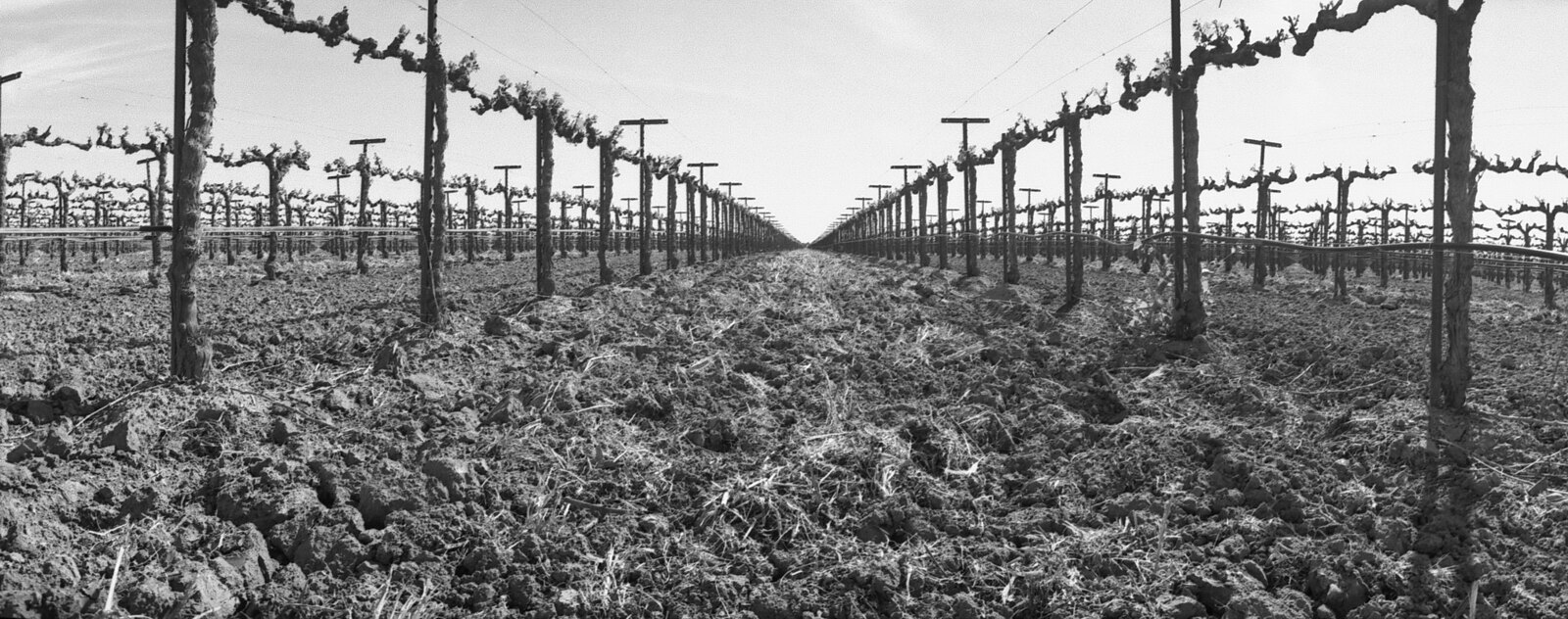
Rows. Near Arbuckle, California: photo by JET, 17 May 2015
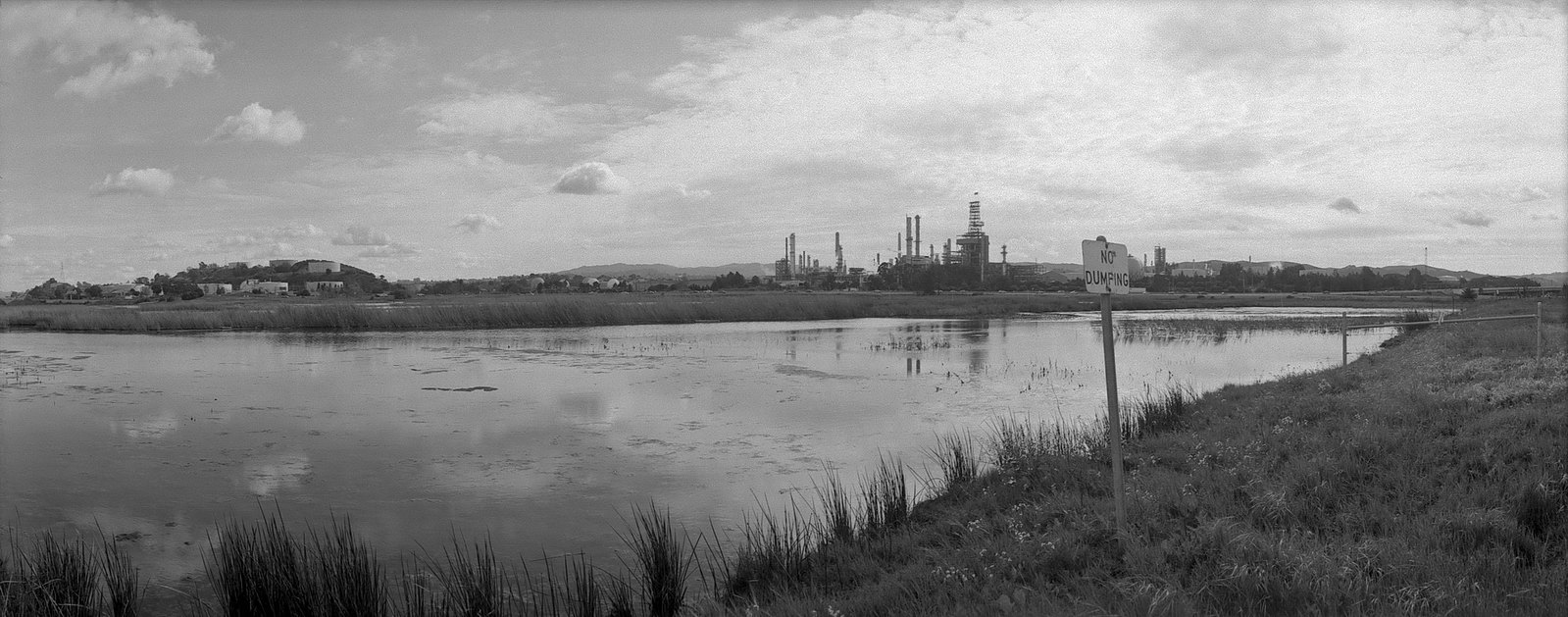
No dumping. Benicia, California: photo by JET, 3 May 2015
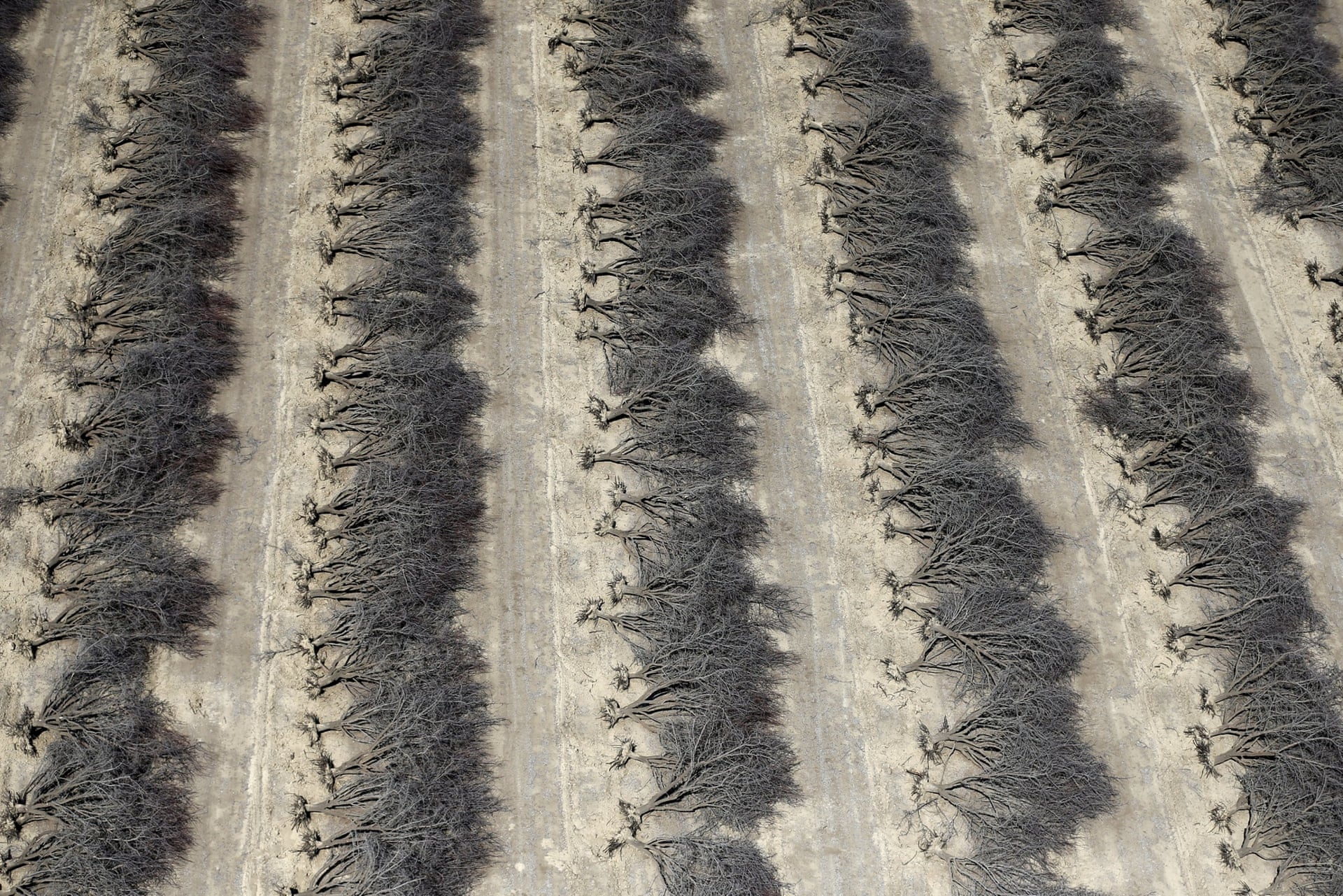
Almond trees fall victim to the drought in Coalinga in the Central Valley, California: photo by Lucy Nicholson/Reuters via the Guardian, 9 May 2015
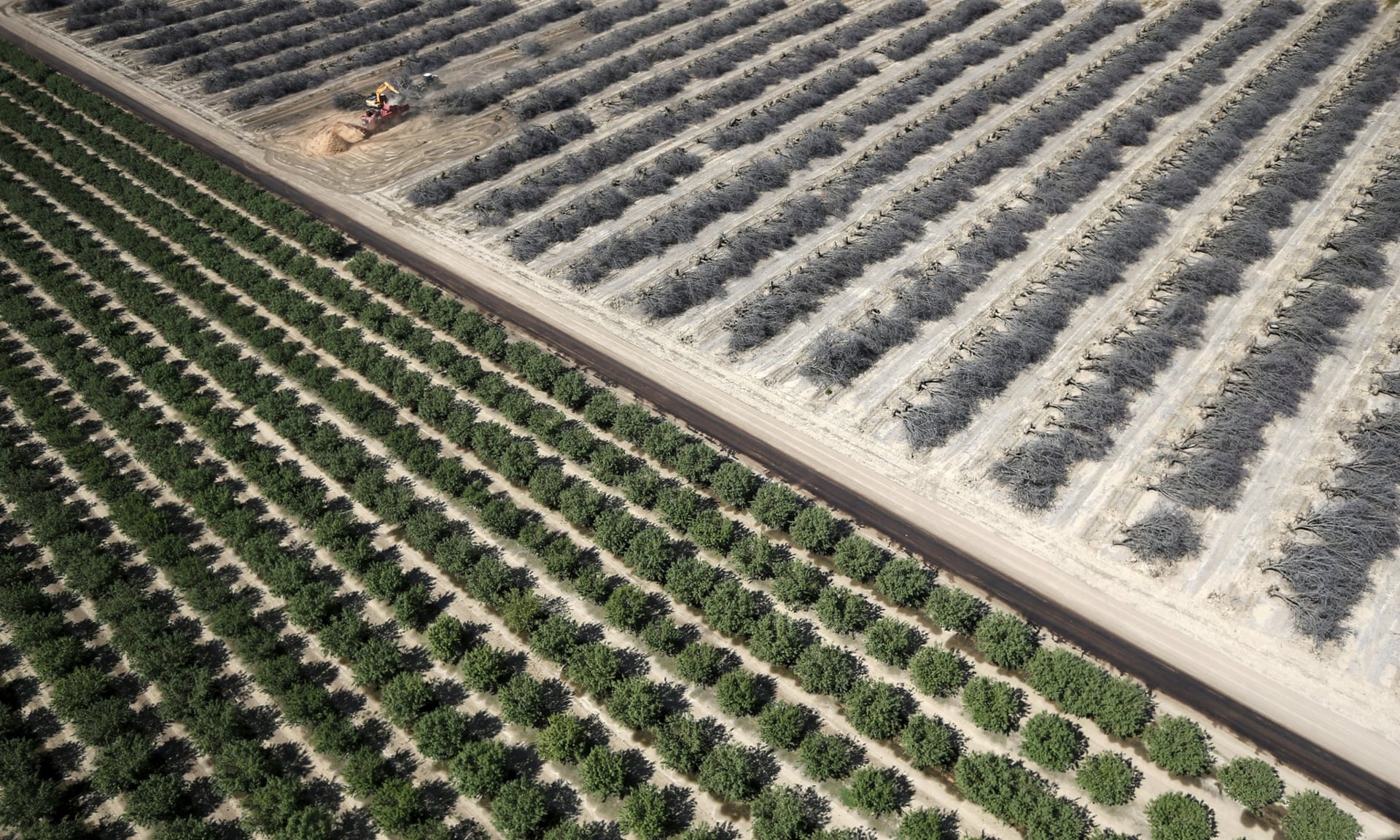
Growing and dead almond trees in Coalinga in the Central Valley: photo by Lucy Nicholson/Reuters via the Guardian, 9 May 2015
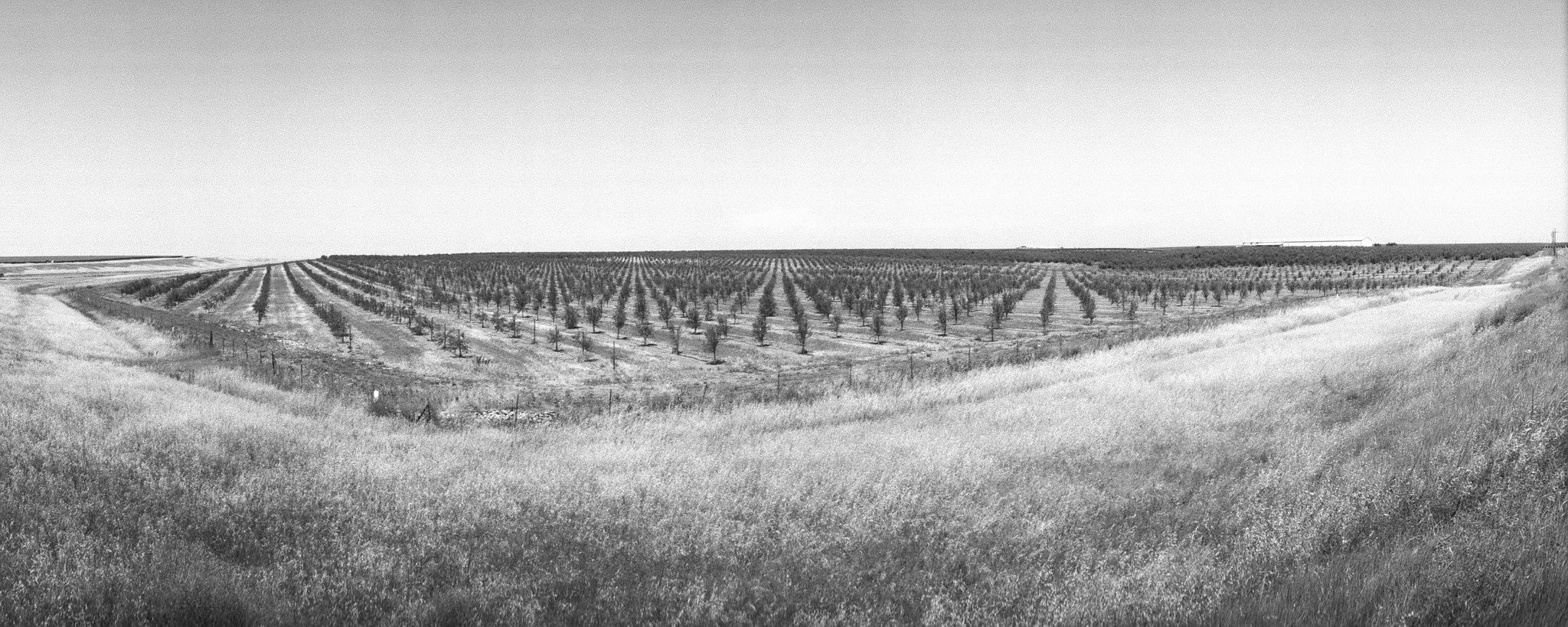
Above the orchard. Northern California: photo by JET, 31 May 2015

Legend of St Francis: 14. Miracle of the Spring: Giotto di Bondone, 1297-1300, fresco, 270 x 200 cm (Upper Church, San Francesco, Assisi)
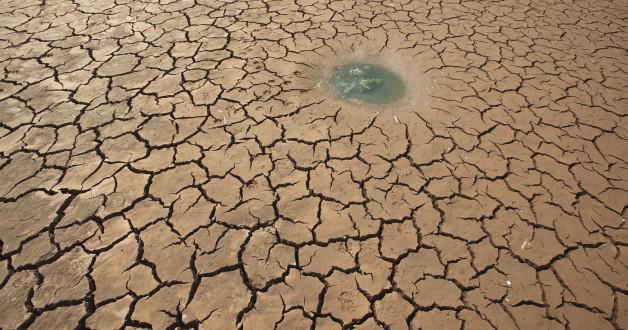
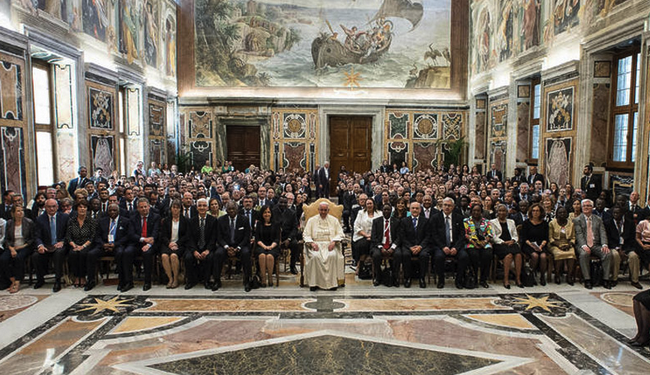
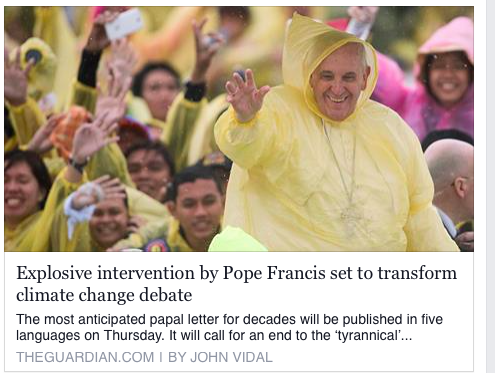



8 comments:
Francis of Assisi the patron of Ecology maybe has inspired him !
This is something I'm really looking forward to! It may be too late but even some economists (like Stern) now recognize that this is at least in part a deeply ethical issue (in so many different ways).
Salams,
b.
Sandra,
I think you have that right.
K,
Well, realistically, this Pope is clearly way out on a limb here, in particular as his "constituency" comes largely from South America and Africa, far from the great, massively culpable "technologically-advanced" industrial nations -- for whom, obviously, this unexpected initiative of his can only come as an annoyance.
The "Stern position" -- a faith in "good technology" to save us all from the effects of "bad technology" -- seems to me essentially flawed.
Stern has actually suggested that the necessary correction, an eleventh-hour conversion to green technologies, will arise in China, of all places.
Hopeful faith in a nascent global surge of altruism, technological optimism, gadget-making fantasy and all other convenient forms of removal from the reality of the present situation -- all this is well-meaning enough, surely, but sadly, also not good enough.
Technology having got the world into this fix, trusting technology to supply the correction does seem in so many ways problematic.
I'm put in mind of Jane Goodall's melancholy conclusion, after all her years of working with chimps, that it was the development of language skills -- the basic communication of logistical information to enable night-ambushes -- that had been the key to the relative evolutionary success of the chimpanzee as a species.
Jane's subsequent eloquent plea for a further evolution of language skills that would undo the harm originally done, in her conclusion based on observation-based witnessing, by language, has, alas, the circular, self-defeating quality that characterizes all human logic and language.
Still, it's hard not to love this Pope for making the good effort, offering the good example, however little, however late. Better surely than what we've seen out of any politician in recent memory.
Agree with you about technology (think Illich was *the* thinker here) and not sure about Stern-if that is what he is proposing. But I do think on the specific point of drawing us to the idea that at the heart of the environmental crisis is ethics and not just economics or technology his views are essentially correct. For example, on the discount factor being an "ethical parameter"..and a result of his 'estimation' of it the advocacy of urgent change now (cp. Nordhaus).
Absolutely, of course it's an ethical matter. Technology doesn't allow for much less acknowledge the place of ethics in a world of meaning. This is why the worlds created and foreseen by technology will ultimately have no place for any sort of meaningful life -- that is, as now remembered by the hopeless and vulnerable and anybody who simply can't get with the program (presumably this is a category of more than one).
It sounds so simple and pat to say this... but here at the centre of the global technological universe, life as remembered has lost all meaning. What was once dense and vivid and full is now hollow, colourless, empty, a husk. All that remains is property, money, speed and deceptive surface configuration.
Somebody on the radio has just employed the old expression -- "going to hell in a handbasket".
Talking of sport, doubtless.
I'm still dazzled by the common sense -- and cojones -- of this Pope, though.
On a blazing day in June of 1964 I was toiling up the winding trail to the Basilica of San Francesco in Assisi to see the Giotto fresco cycle of the Legend of Saint Francis when down the trail from the opposite direction came a man on the run, waving one arm in the air in broad swinging strokes as he came.
What was he up to? Had he been miraculously transformed? Did he really exist, or was this just a vision caused by the heat?
He came nearer... and then it could be seen that he was wielding a butterfly net, swinging it in great arcs out ahead of him... as he ran on past, down the trail.
I mean to say, I grew up among believers in miracles yet (therefore?) never was one myself -- but at this point, what else is there to lose, maybe it's about time.
Interesting reflections, as always, Tom.
Never heard that particular expression but have heard: going to hell in a handcart..which is what is happening to this country, on this side of the pond. Perhaps its everywhere, just different speeds.
I wonder if the idea of neutrality (technological and that of a liberal society) has allowed for the possibility of manipulation by the powerful?
Just finished a book that might interest you Tom (Matthew Crawford: The world beyond your head).
Colourless..yes. 'Wisdom is grey but life and religion are full of colour'?
Miracles. That's never been a question for me-and I hope it never will be. That a caterpillar can transform itself into a butterfly-does she remember something of her former self?..is surely the type of holding of continuity and discontinuity that makes for a miracle?
Well, I suppose by "miracle" I meant any nano-smidgeon of unexpected hopeful news that might manage to float up over the drear horizon...
Interesting conjunction between these thoughts on the colourlessness of the techno-flattened globe and the Pope's extremely impressive document, which has just now been released, in which he uses the same epithet -- colourless -- to characterize our present world, culmination of all human "progress".
It's definitely worth looking into, I think.
ENCYCLICAL LETTER LAUDATO SI’ OF THE HOLY FATHER FRANCIS ON CARE FOR OUR COMMON HOME: full text
“LAUDATO SI’, mi’ Signore” – “Praise be to you, my Lord”. In the words of this beautiful canticle, Saint Francis of Assisi reminds us that our common home is like a sister with whom we share our life and a beautiful mother who opens her arms to embrace us. “Praise be to you, my Lord, through our Sister, Mother Earth, who sustains and governs us, and who produces various fruit with coloured flowers and herbs...”
Yep, reminds me of a line from The Wings of Desire: 'Remember the colours'.
In the grey evenings of the mind, on the other hand, we have technology and fundamentalism with their black and white, reductive perspectives.
Downloaded it yesterday, but thanks!
Post a Comment